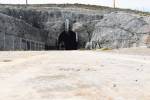Bill is vague about reserve funds, violates privacy
Editor's Note: This is the last column in a special three-part series addressing bills before the Legislature that would affect Las Vegas homeowners associations.
I would like to finish discussing more sections of Assembly Bill 448. I'll continue to watch this bill, which I oppose, and keep you updated. I also, will provided summaries on other bills before the Legislature.
• Page 35, Section 17 -- This section defines surplus funds. What is missing from the definition is that surplus funds would not include any prepaid assessments in December, as many homeowners prepay their January assessments and many pay for the full year.
In addition, there may be an appearance of surplus funds at the end of the year because of the multiple closing of delinquent homes, which would bring nine months of past-due assessments per unit sold.
Finally, it does not take into consideration outstanding account receivables. You could have what appears to be surplus funds, and yet have more than $100,000 in delinquent assessments. Just look at the financial condition of the state a few years ago, and who would have thought the economy would turn upside down? Associations need safety nets.
• Page 37, Section 2 -- It was the Legislature that passed stringent laws pertaining to funding of reserves in response to homeowner advocates who were faced with high special assessments to help correct major capital improvements, such as the replacement of roofs. The current law requires that when the association sends the new budget for the year, it must also send the summary of the reserves.
Homeowners who take time to look at this material can see in advance what capital expenses will be incurred by the association. In some cases, associations are underfunded.
To cap the special assessment at $35 per month defeats the entire purpose of having a reserve study in the first place.
Funding reserves is based specifically upon improvements within an association, its age and condition. If the reserves are not properly funded, what do you think will happen two or three years down the line when roofs have to be replaced, and the association does not have the funds?
• Page 38, Sections 9-12 -- These sections are totally unrealistic. There is no way that associations would obtain majority approval on needed improvements, especially now with so many vacant homes and properties owned by the banks.
Most capital expenditures are for fixed assets, which are listed on the reserve study. If you pass this section of this bill, you would have turned communities into disrepair. As a state, Nevada, has one of the lowest turnouts during local, state and federal elections, and this homeowner apathy is no different with homeowner associations.
• Page 40, Section 24 -- This section pertains to records a member may view and or receive. What has been added to the law includes "records filed with a court relating to civil or criminal action to which the association is a party."
This absolutely should be deleted, as it would be against the Federal Privacy Act.
For example, Homeowner A files a civil or has a criminal suit filed against Homeowner B and also names the association as a party because the association did not take action against Homeowner B.
This would involve a case of homeowner-to-homeowner, where the association is a tangent to the suit and the proposed law would require the association to provide this information to other homeowners.
The proposed law would also allow a member to have access to another member's architectural plans (please note the 2009 Legislature passed a law that states a homeowner's architectural plans are private and cannot be made available to another homeowner. This proposed law would change it back to prior 2009 laws. (See NRS 116.31175 Subsection 1b).
• Pages 56, Section 33 -- This pertains to the commencement of mediation or arbitration. The proposed law would allow a third alternative, which would be filing the complaint in a court of law.
Right now, the law allows certain actions to bypass the arbitration, mediation and complaint process through the Ombudsman, Division and Commission.
This is overkill. The courts are in no position to be flooded with additional complaints, when there already is due process and various options for the complaining homeowner to access.
• Page 58, Section 4 -- This proposed law sets an unrealistic cap on a mediator or arbitrator and needs to be eliminated. Some cases take many months. The law does not take into consideration the amount of time that one would spend on any case.
There could be a number of hearings, testimonies of witnesses, massive documents to read, research and finally the written judgment itself.
As an expert witness, I can easily spend more than 30 hours on any one case. To find competent people who are qualified, they are not compensated at $10 an hour.
• Page 59, Section 9 -- This section would prohibit findings of the arbitrator as being inadmissible in a civil action. That should be a decision by the courts with each party providing a brief as to why or why not. This should not be part of law.
Barbara Holland, certified property manager, is president and owner of H&L Realty and Management Co. To ask her a question, email support@hlrealty.com.

















